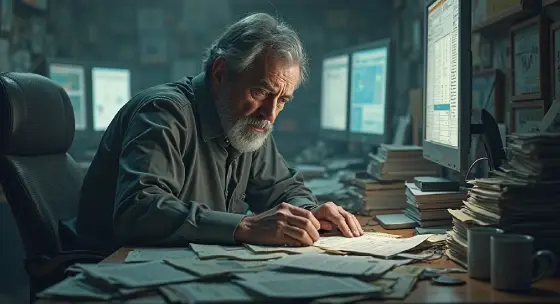
“The market didn’t beat me—I beat myself… It wasn’t just a loss—it was exposure. The market had laid me bare, stripped away every layer of self-deception.” The world sees trading as a numbers game—green and red charts, wins and losses, profit and risk. But what they don’t often see is the silent cost behind the scenes: the emotional clarifying, the shattered self-esteem, the sleepless nights, and the isolation that comes from living in a world driven by volatility. In The High/Low, Khosrow Motalaby doesn’t just talk about losing money—he takes us deep into the mind of someone who loses himself. This is not just another trader’s tale. It’s a demonstration of how the market, when chased obsessively, can chip away at identity, confidence, and peace of mind. “The trade closed. The loss was locked in. But as the weight of the decision settled in, so did something else—something colder. A realization: it’s never enough,” Motalaby admits after a defining moment of loss.
The journey in The High/Low starts with purpose. A calculated system. Confidence built on experience. Motalaby’s High/Low system—his pride, his creation—had rules. It had logic. But logic means nothing when it’s competing against emotion. “I wasn’t just playing the market. I was playing myself,” he confesses in a scene that captures not just a bad trade, but a collapse of self-control. At first, the wins feel like rewards. But the author quickly reveals how those wins were not fulfilling. “Each success felt like a step toward something elusive, something just beyond reach,” he writes. Instead of peace, the profits fed something darker: hunger. Hunger for validation. Hunger for control. Hunger for more. Motalaby demonstrates that even with a system boasting 82.5% accuracy, without patience and discipline, he still couldn’t beat the market.
This is the real cost. It’s not the six-figure loss or the missed opportunity. It’s what happens when you tie your self-worth to a chart. When your emotions rise and fall with the S&P. When you win, and it’s still not enough. “There was no frenzy, no wild flickering of green and red lights that had once drawn me in like a moth to flame,” he describes after a devastating trade. What once gave him life now feels empty. The adrenaline rush that used to wake him up now leaves him exhausted. And the silence—once a space for clarity—becomes unbearable. Motalaby walks us through these feelings with brutal honesty. There’s no pretense. No sugarcoating. “This wasn’t just money slipping away. It was his identity, his pride, his very sense of self.” In that moment, he realizes that what he lost was more than a dollar amount. It was belief in who he was, in what he had built.
He doesn’t shy away from telling us how easy it is to get caught in this loop. You don’t notice when it happens. It’s subtle. A slight overtrade. A skipped rule. A late-night session where you try to make back what you lost. “The more he played, the more he lost, the more it consumed him. And yet, he couldn’t stop.” There’s a reason this book is subtitled A Psychological Thriller of Greed, Fear, and the Illusion of Control. The thriller is internal. The fear is not of the market, but of oneself. The greed isn’t for wealth, but for redemption. And the illusion? That we can ever truly beat the market without first mastering our own mind. Motalaby’s fall is not unique—but the way he unpacks it is. With each chapter, we feel the pressure building. The tension isn’t in whether the trade will go up or down—but whether he’ll stick to the system or break. “Control was an illusion… The market had let him win,” he finally admits. And in that moment, we see the truth he’s come to accept: it wasn’t the market that broke him. It was chasing the idea that he could outsmart it.
And yet, The High/Low isn’t a book about defeat. It’s a book about reckoning. “Perhaps the real challenge wasn’t conquering the market at all. Maybe the true battle was conquering himself.” That shift—from fighting the market to understanding one’s own psychology—is what makes this book so greatly impactful. Toward the end, there is no “magic trade” that brings everything back. No sudden turnaround. Just quiet awareness. A man who has seen the edge, fallen off it, and now begins to see clearly. “This is the bottom. From here, there’s nowhere to go but up,” he tells himself—not with false hope, but with grounded reflection. Khosrow Motalaby’s The High/Low is not just for traders. It’s for anyone who has ever chased something so hard they lost sight of themselves. It’s for those who’ve tied their success to external outcomes, only to find that the internal fallout is far more devastating. This book reminds us that the greatest risk isn’t in losing money—it’s in losing yourself along the way. And sometimes, the only way forward… is to finally stop chasing.
Subscribe to Newsletter
Want to know what drives the mind of a market-obsessed character? Curious what Khosrow (Hoss) Motalaby is writing next?
Subscribe to the newsletter and be the first to get exclusive excerpts, author notes and commentary, special offers and early access to new books, and insights into the psychology behind The High/Low.